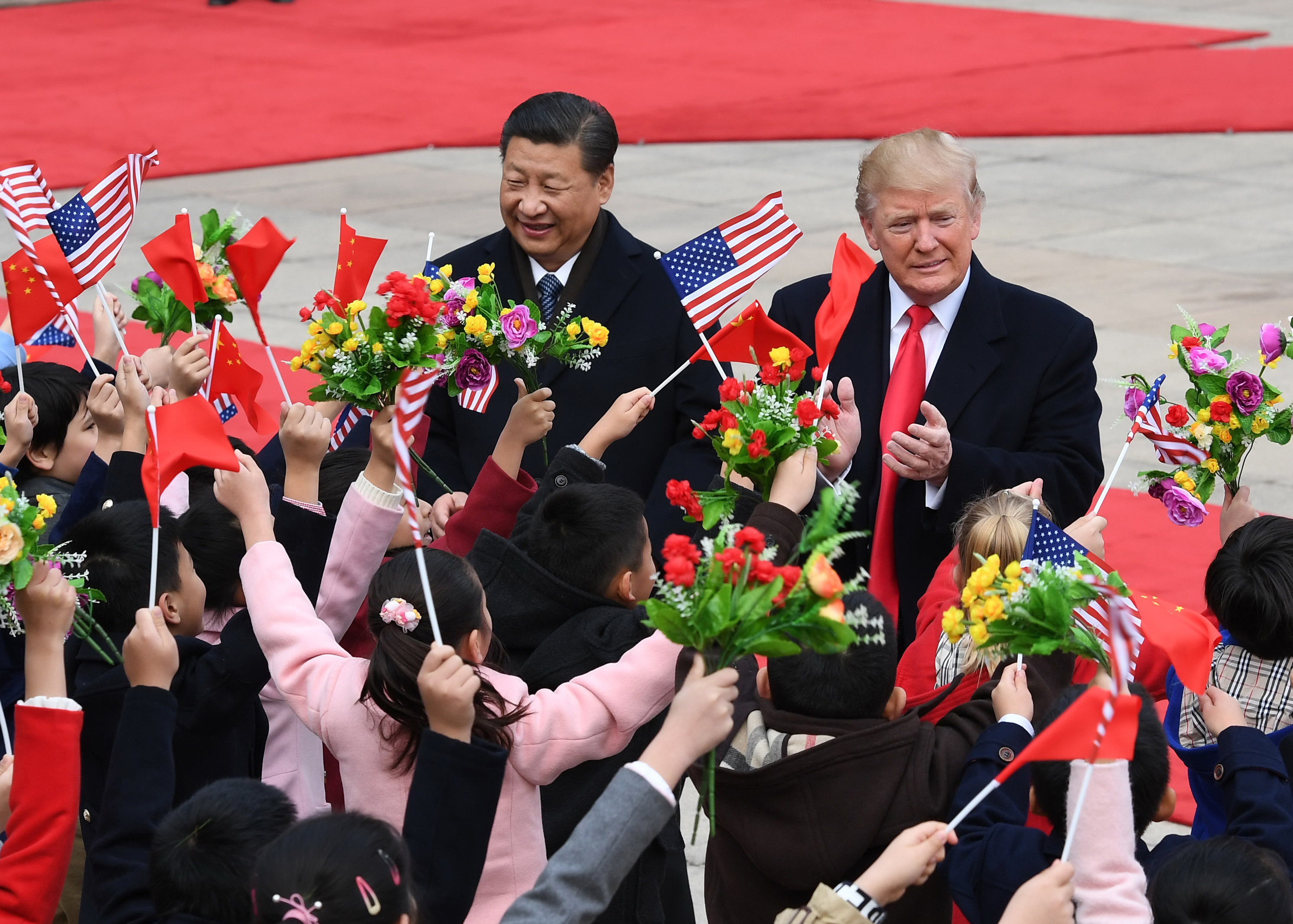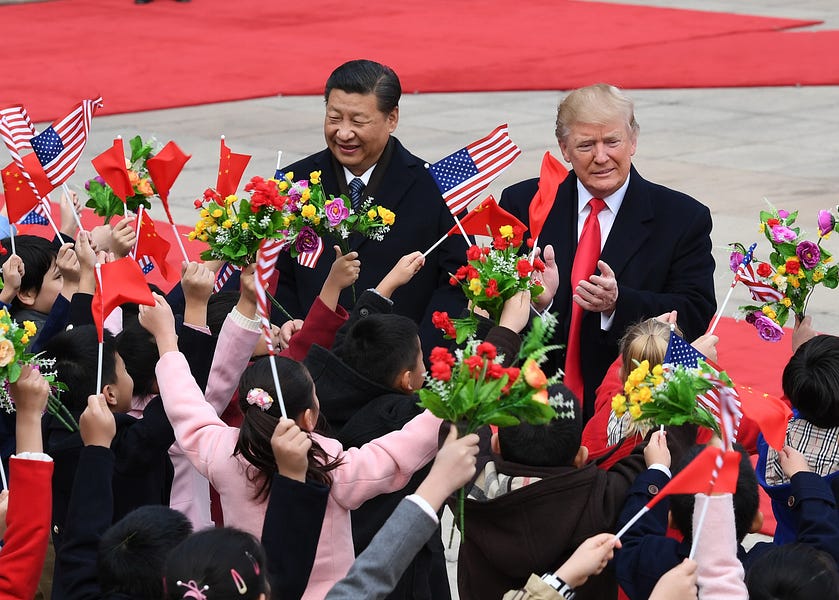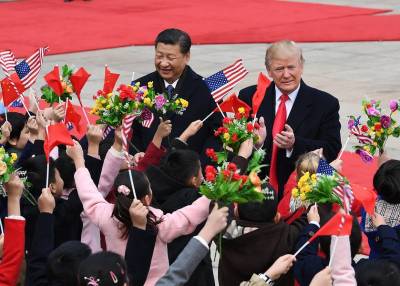Happy Monday. Let’s get right to it.
Quick Hits: Today’s Top Stories
As of Sunday night, there are now 759,569 confirmed cases of COVID-19 in the United States (a 3.4 percent increase from yesterday) and 40,679 deaths (a 4.6 percent increase from yesterday), according to the Johns Hopkins University COVID-19 Dashboard, leading to a mortality rate among confirmed cases of 5.4 percent (the true mortality rate is difficult to calculate due to incomplete testing regimens). Of 3,865,864 coronavirus tests conducted in the United States, 19.6 percent have come back positive. There are 115,792 Americans hospitalized with COVID-19 complications (a 1.5 percent increase from yesterday), while 70,927 have recovered from the virus (a 6.7 percent increase from yesterday).
Sixteen people are dead after a man impersonating a police officer went on a shooting spree across the small town of Portapique, Nova Scotia, Saturday night. It was the deadliest mass shooting in Canada’s history.
Congress and the White House are close to striking a deal to replenish a depleted fund of forgivable loans available to small businesses during the coronavirus crisis, which ran out last Thursday.
Protests against lockdowns continued sporadically around the U.S. over the weekend, while some evidence emerged that some were being centrally coordinated by a single family of political activists on social media. While a comfortable majority of Americans—nearly 60 percent—say they’re more worried that relaxing lockdowns would worsen the pandemic than they are that lockdowns will continue to damage the economy, Republicans are now close to evenly split on the question, according to one recent poll. Earlier this month, close to 70 percent of Republicans told another pollster they supported stay-at-home orders across the nation.
Other protests are beginning to bubble up around the world: Tens of thousands of stranded migrant workers protested in the streets of Mumbai, India, last week, while additional demonstrations took place in Lebanon and Iraq.
Russia is reportedly quarantining 10,000 to 15,000 soldiers who took part in rehearsals for the Victory Day parade. Vladimir Putin postponed the May 9 event, which was to mark the 75th anniversary of the end of World War II.
Election 2020: Who’s Tougher on China?

With less than 200 days until the 2020 election, China looks set to play the role in our popular imagination that Russia so capably did four short years ago.
“[Vladimir Putin would] rather have a puppet as president of the United States,” Hillary Clinton said of the Russian leader’s support for her opponent during a debate in 2016. Donald Trump’s now-familiar retort: “No puppet. No puppet. … You’re the puppet.”
In the midst of a once-in-a-century pandemic originating in China and exacerbated by its Communist Party’s obfuscation, both Trump and Joe Biden—his new Democratic challenger—are working overtime not only to shore up any weak spots in their respective posturing toward our geopolitical rival to the east, but to paint their opponent as being in President Xi’s pocket. In other words: “No puppet. No puppet. … You’re the puppet.”
Consider this ad from the president’s re-election campaign.
The spot touts the president’s decision to (for the most part) close down travel to the United States from the pandemic’s epicenter, while “Biden protected China’s feelings” is overlaid on the screen. The former VP is shown clinking glasses Chinese officials, criticizing Trump’s “hysterical xenophobia,” and telling a crowd, “it is in our best interest that China continue to prosper.”
The ad itself is misleading in a number of ways. It includes Gary Locke—the former governor of Washington, commerce secretary, and U.S. ambassador to China—in a montage of Biden, as vice president, hobnobbing with Chinese officials. It cut out the words “he indicated that” from a clip of Biden saying, “I complimented [Trump] on dealing with China”—Biden went on to further criticize the Trump administration’s lack of urgency. The Biden campaign contends their candidate’s “hysterical xenophobia” comments did not refer to Trump’s travel ban, though that’s debatable.
But the video—along with a pro-Trump super PAC’s $10 million, multi-state ad buy looking to brand the Democratic nominee as #BeijingBiden—reflects an increasingly apprehensive stance toward China among the American electorate. In a March Pew Research Center poll, 62 percent of respondents said China’s power and influence is a “major threat” to the United States, up from 41 percent in 2017. And this trepidation is not particularly partisan—only 6 percentage points separated Republicans and Democrats in the survey.
Which is why, over the weekend, the Biden campaign felt the need to push back.
In an ad simply titled “Unprepared,” a narrator acknowledges the attacks being launched Biden’s way, but dismisses them as attempts to “hide the truth.” Trump “rolled over for the Chinese,” the video alleges over old footage of an earlier Trump visit to China, referencing the president’s January 24 tweet praising China’s response to the virus.
The ad shows Trump—on February 7—repeatedly telling reporters, “I think that China will do a very good job,” and it argues he hasn’t held China accountable for its role in the spread of the coronavirus.
Animal House
If you follow the adventures of Zoë and Pippa on Twitter or have heard Sarah’s graphic childhood stories about the ratsicles in her freezer that fed the injured and orphaned owls that found their way into her home, you know we are big fans of animals here at The Dispatch. And while this may not be the most pressing news around a worldwide pandemic, our furry friends need some good news too—aside from the notable increase in walks and belly scritches that have become available under the current conditions.
Adoptions
Across the country, Americans are answering the call to adopt and foster shelter animals. Just this week, the president and CEO of the American Society for the Prevention of Cruelty to Animals said that “the organization has seen a 70 percent increase in animals entering foster care in their New York City and Los Angeles programs compared to this time last year.” They’ve even started a kitten delivery service using ride-sharing apps in Los Angeles. And the president and CEO of the Humane Society of the United States has noticed the same thing. Kitty Block said “the rates of fostering, in particular, have increased by 90 percent in some cities.”
In fact, some shelters are making history. In Pennsylvania, a shelter “saw its foster application numbers rise from three-to-five per week to 40 per day.” (emphasis added because we are very excited by all this good news). Many shelters across the country—from Jersey City, New Jersey; to Baytown, Texas; to Chicago—have found homes for all of their animals as people looked for furry companions to ride out the quarantine. A Facebook post from Palm Beach County read, “An incredible and joyful thing happened today.....For the first time in the history of Palm Beach County Animal Care and Control, we have a completely EMPTY kennel.”
“We cleared the shelter!” said one southern California shelter in an Instagram post, noting that their last two dogs—a “short, squat beefcake” named Penn and a “boisterous babe” named Alley—had found their forever homes at last.
Even so, many people who are diagnosed with the virus or who are facing economic hardship are being forced to surrender their pets. And spring is the season when shelters see the largest uptick in kittens under normal circumstances, but this year many spay-and-neuter programs have been put on hold to conserve PPE or have been deemed non-essential, which could result in an even larger kitten surplus.
Zoos
It turns out even the animals are bored during the quarantine. Zoo directors from around the world are noting that the animals miss their human entertainment.
From the Berlin Zoo where “the apes especially love to watch people,” even the seals and parrots are finding this whole thing “really pretty boring.” Two giant pandas in the Moscow Zoo have “started to much more actively approach every single person who walks past their enclosure.”
And then there’s Edward and Annie, two rockhopper penguins who were spotted on date night waddling around the Shedd Aquarium in mid-March.
But there are bigger problems on the horizon. Zoos are often funded by visitors, which means most zoos in the world currently are missing out on as much as 90 percent of their revenue. But the animals still need to eat even if no one is watching. And many of them eat a lot. The National Zoo in Washington, D.C. goes through “four tons of bananas, three tons of capelin (a small fish) and 100 tons of hay” each year.
One zoo director in Germany has made a particularly blunt plea for help, saying, “If it comes to it, I’ll have to euthanize animals, rather than let them starve...at the worst, we would have to feed some of the animals to others.” Although the zoo director in Birmingham, Alabama, said “I’d get out on the highway and collect aluminum cans if that’s what it took to keep our level of care at the highest for the animals.” And one zoo in Wisconsin had a new idea for families feeling a little too caged themselves—drive through animal exhibits.
Worth Your Time
American history is full of presidents whose tenures were dragged to a premature end because they struggled to effectively manage an election-year crisis. Is that the fate the coronavirus spells for Donald Trump? Politico’s Michael Kruse isn’t so sure, as he explains in this interesting retrospective on Trump’s career of Houdini-like escapes from dire fixes: “Trump’s aghast critics see a president backed into a corner, desperate and unmanned, in a frantic, final freefall. But people who’ve watched him for years, who’ve witnessed the dizzying pivots, the great escapes, the gobsmacking victories in the face of arguably more unforgiving audiences than American voters—what they see is Trump deploying tools and tactics that have worked before and could work again.”
When it comes to relations with China, the coronavirus crisis has President Trump in a difficult spot: feeling the pressure to keep denouncing Beijing for its irresponsible and dishonest early coronavirus strategy, but also eager not to ruin his relationship with Xi Jinping and scupper Chinese trade talks. Jonathan Martin and Maggie Haberman of the New York Times sound out that complicated dynamic in this useful piece.
What happens when a group of leaders accustomed to governing via folksy moral certitude run suddenly into and are forced to manage a concrete real-world crisis? Nothing good, as Kevin Williamson explains here in National Review.
Presented Without Comment
Also Presented Without Comment
Also Also Presented Without Comment
Also Also Also Presented Without Comment
Something Fun
One silver lining about our ongoing national lockdown: The entertainment industry is really pulling out all the stops. On Saturday night, there was “One World: Together At Home,” a musical extravaganza hosted by Stephen Colbert, Jimmy Kimmel, and Jimmy Fallon and featuring performances and cameos from piles of other musicians and celebrities.
Then, last night, there was the premiere of the first two episodes of ESPN’s The Last Dance: a new all-access documentary about Michael Jordan and the 1997-98 Chicago Bulls. If you’re a fan of the NBA, Chicago sports, stories about the greatest dynasties of all time, or just incredible documentaries featuring tons of never-before-seen footage, it’s a no-brainer. If none of those things are your cup of tea—well, you can always stick around for the excellent chyron work.
Toeing the Company Line
David’s latest Sunday French Press assessed how America’s white Evangelicals have responded to President Trump’s handling of the coronavirus crisis: mostly, by circling the wagons. His assessment is stark: “Many millions of Trump-supporting white Evangelicals no longer care about character (though a surprising number are still remarkably unaware of his flaws). That much is clear. But the story now grows darker still. As they’ve abandoned political character tests, they’re also rejecting any meaningful concern for presidential competence.” To read the column—or to join the incredibly lively conversation going on in the comments!—head over yonder.
If you missed Jonah’s G-File on Friday, now’s the time to catch up! Among other things, he ponders at length the question: Should we find the incongruity of President Trump’s briefing-room antics funny?
On the website today, Nicholas Grossman writes about the downside of defunding the World Health Organization, as President Trump has done. “At best, it’s an act of petulance detached from any logical strategy. At worst, it’s forfeiting American power and weakening global health capacity at the worst possible time”
Let Us Know
Sarah is officially less than two months away from her due date, when she’s set to add the littlest Dispatch-er to the family. With her quarantine time, she’s making lots of lists of how to introduce her forthcoming alien to our little blue planet. This week? The best rock-and-roll songs for little kids. Here’s what she’s got so far—what else should make the playlist?
The Jackson Five: Rockin’ Robin
They Might Be Giants: Particle Man
Three Dog Night: Joy to the World
Peter, Paul, & Mary: Puff the Magic Dragon
The Beatles: Octopus’s Garden
Reporting by Declan Garvey (@declanpgarvey), Andrew Egger (@EggerDC), Alec Dent (@Alec_Dent), Sarah Isgur (@whignewtons), and Steve Hayes (@stephenfhayes).
Photograph of Xi Jinping and Donald Trump in Beijing in 2017 by Xinhua/Rao Aimin/Getty Images.







Please note that we at The Dispatch hold ourselves, our work, and our commenters to a higher standard than other places on the internet. We welcome comments that foster genuine debate or discussion—including comments critical of us or our work—but responses that include ad hominem attacks on fellow Dispatch members or are intended to stoke fear and anger may be moderated.
With your membership, you only have the ability to comment on The Morning Dispatch articles. Consider upgrading to join the conversation everywhere.